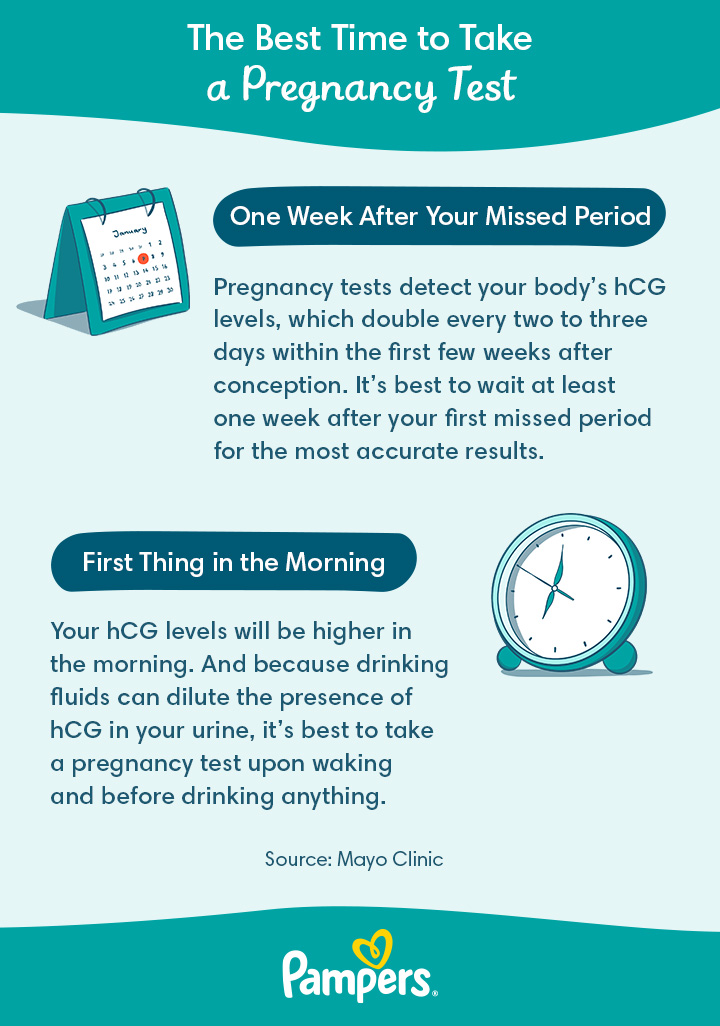
The Optimal Time to Take a Pregnancy Test: A Comprehensive Guide
Introduction
Determining the best time to take a pregnancy test is crucial for accurate results. Understanding the underlying hormonal changes and test sensitivity is essential for maximizing the chances of detecting a pregnancy early on. This comprehensive guide will delve into the factors that influence the optimal time for pregnancy testing, providing valuable insights to guide your decision-making.
Understanding Pregnancy Hormones
Pregnancy is characterized by a surge in human chorionic gonadotropin (hCG), a hormone produced by the developing placenta. hCG levels rise rapidly in the early stages of pregnancy, doubling approximately every two to three days.
Types of Pregnancy Tests
There are two main types of pregnancy tests:
- Urine tests: Detect hCG in urine samples.
- Blood tests: Measure hCG levels in blood.
Blood tests are generally more sensitive than urine tests, but they require a healthcare professional to draw blood and send it to a laboratory for analysis. Urine tests, on the other hand, are more convenient and can be performed at home.
Optimal Time for Urine Pregnancy Tests
The best time to take a urine pregnancy test is:
- First morning urine: Urine is most concentrated in the morning, resulting in higher hCG levels.
- After a missed period: Most tests can detect hCG levels as low as 20-25 mIU/mL, which is typically reached a few days after a missed period.
- 6-10 days after ovulation: If you are tracking your ovulation, taking a test 6-10 days after ovulation can increase the chances of detecting pregnancy early.
Factors Affecting Urine Test Sensitivity
Several factors can affect the sensitivity of urine pregnancy tests:
- Test brand: Different brands may have varying sensitivities.
- Test type: Digital tests are generally more sensitive than strip tests.
- Hydration status: Drinking excessive fluids can dilute urine and lower hCG levels.
Optimal Time for Blood Pregnancy Tests
Blood pregnancy tests can detect hCG levels as low as 5-10 mIU/mL. Therefore, they can be performed earlier than urine tests. The optimal time for a blood pregnancy test is:
- As early as 6-8 days after ovulation: This is the earliest time that hCG levels may be detectable in blood.
- Any time after a missed period: Blood tests are highly sensitive and can detect pregnancy even after a missed period.
Interpreting Pregnancy Test Results
- Positive result: Two lines or a digital display indicating "pregnant" or "positive" usually indicates pregnancy.
- Negative result: One line or a digital display indicating "not pregnant" or "negative" usually indicates the absence of pregnancy.
- Faint line: A faint line on a urine test may indicate an early pregnancy or low hCG levels. Repeat the test in a few days or consider a blood test for confirmation.
- False positive: Rarely, a pregnancy test may show a positive result even if you are not pregnant. This can be due to certain medical conditions or medications.
- False negative: A pregnancy test may show a negative result even if you are pregnant. This can occur if the test is taken too early or if hCG levels are low.
Recommendations
- If you suspect you may be pregnant, take a pregnancy test as soon as possible after a missed period.
- Use a sensitive test, such as a digital urine test or a blood test.
- Follow the test instructions carefully.
- If you get a positive result, consult with a healthcare professional for confirmation and further guidance.
- If you get a negative result but still suspect you may be pregnant, repeat the test in a few days or consider a blood test.
Conclusion
Understanding the best time to take a pregnancy test is essential for accurate results. Urine tests are convenient and can be taken at home, while blood tests are more sensitive and can detect pregnancy earlier. By considering the factors discussed in this guide, you can maximize the chances of detecting a pregnancy early on and make informed decisions about your healthcare.